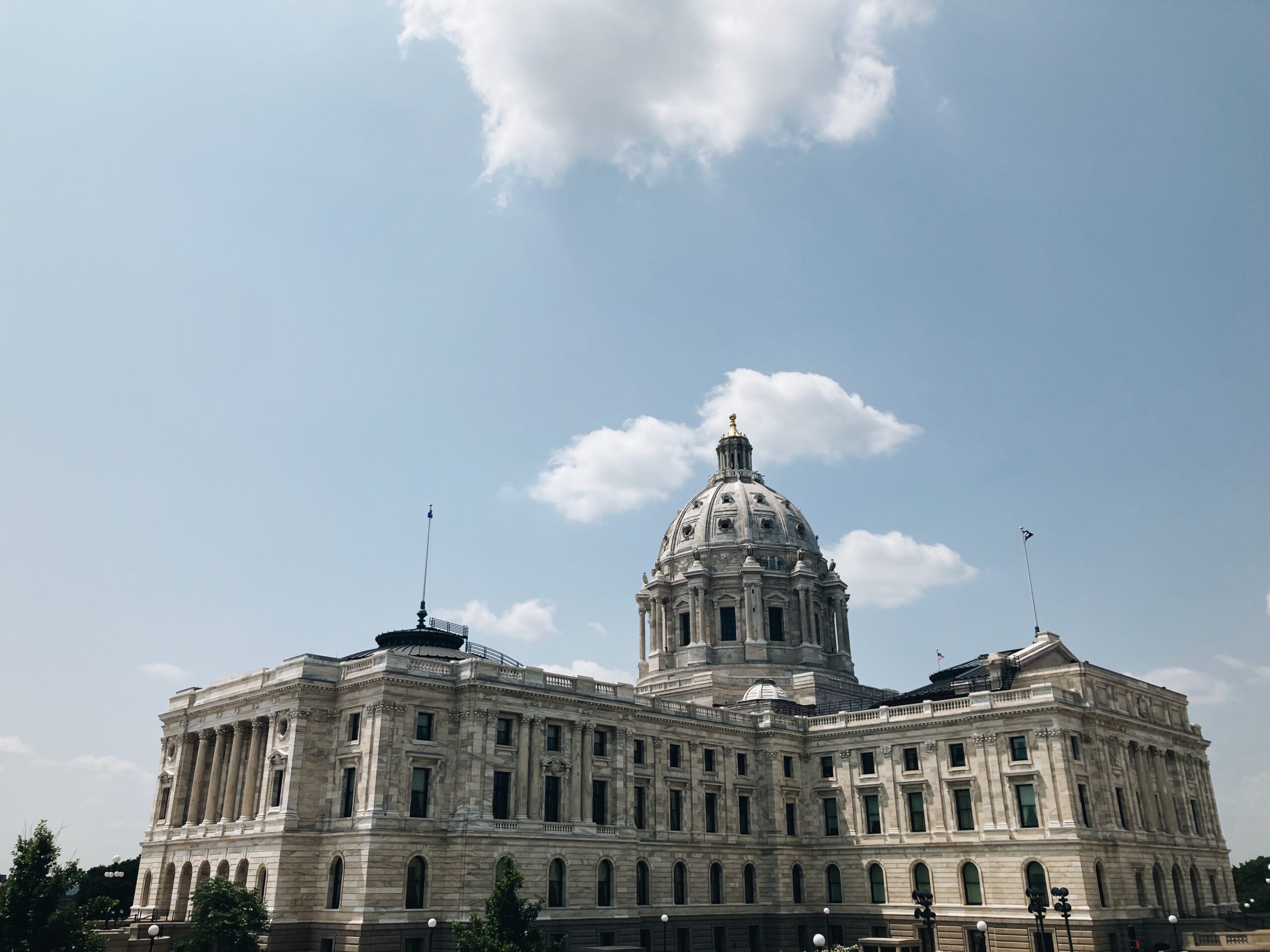

Share
This article first appeared in Minneapolis Labor Review.
SAINT PAUL — Minnesota currently has the only state legislature in the nation where Democrats control one chamber and Republicans control the other chamber.
Indeed, over the course of the 2021 legislative session, labor saw many of its priorities pass the DFL-controlled House but go nowhere in the Republican-controlled Senate.
The legislature went into overtime with a special session to conclude unfinished business. When the special session adjourned July 1, the state’s labor unions claimed wins to celebrate, even as other key priorities failed to advance.
Most notably, the legislature agreed to direct $250 million in federal funds to support essential workers who were impacted by the COVID-19 pandemic (see story, page 1).
This funding, however, should be seen only as a first step, maintained the Minnesota AFL-CIO.
“Countless working Minnesotans across multiple sectors and in every corner of our state put themselves in harm’s way for more than a year, many going without pay when forced to quarantine at home,” said Bill McCarthy, Minnesota AFL-CIO president. “These workers, many of whom continue to face racial and economic disparities on top of pandemic stress, need to be made whole for the extraordinary work they do and the sacrifices they made.”
The legislature acted to put state law in conformity with federal law so that workers would not need to pay state income tax on extended federal unemployment benefits — truly significant for workers.
The state’s labor movement went into the special session with four priorities — and helped pass one of the four.
Blocked by Senate Republicans:
a bonding bill to invest in jobs;
an essential worker emergency leave act;
a refinery safety bill.
Passed with bi-partisan support:
a tax credit to boost the film industry.
Despite the legislature’s failure to pass a bonding bill, building trades unions praised several measures that did pass.
Joe Fowler, president of the Minnesota State Building and Construction Trades Council reported: “In the last few days of session, some important legislation was passed that will take a significant step forward towards investing in Minnesota’s aging infrastructure. Legislation that will help create a more stable path to clean energy production that will also create jobs for the skilled and trained local workers in organized labor.”
Fowler also celebrated legislation “that helps combat wage theft and strengthens enforcement and funds additional OSHA staff — all of which help to protect the workers in the field.”
“Those investments along with added language in the Public Safety bill that requires oil refineries to maintain full-time fire departments were all key initiatives supported by the Minnesota Building and Construction Trades Council,” Fowler said.
However, Fowler added, “we continue to be concerned and extremely disappointed that the Refinery Safety language that had bi-partisan support in both the House and Senate just a few days before, was removed from the Omnibus Jobs Bill along a party line vote in the Senate by Republicans.”
Education Minnesota, the state’s teachers union, welcomed legislative action to increase education funding.
“This budget contains the single largest increase in the per-pupil funding in more than a decade, preserves thousands of pre-K seats and makes a wise, strategic investment in increasing the number of Minnesota’s teachers of color,” said Denise Specht, Education Minnesota president.
“We are disappointed by the lack of certain equity provisions supported by educators, but this budget is a meaningful step toward fully funding public education,” she said.
AFSCME Council 5 welcomed several actions by the legislature:
Working Family Credit Expansion — the tax bill expanded eligibility to the working family tax credit to include 19 and 20 year olds without dependents, providing greater financial stability for young people.
Homelessness Prevention — counties will receive a new form of state aid specifically designed to fund programs aimed at homelessness prevention and assistance.
An additional $78.5 million for state agencies and constitutional offices such as Administration, Management and Budget, Attorney General’s Office, Secretary of State’s Office, MN IT Services, Department of Revenue and others.
Over $100 million in funding to update the maximum rates for the Child Care Assistance Program.
SEIU Local 284 celebrated the legislature’s action to ban school practices that shamed students for unpaid school lunch accounts. “No student should ever go hungry at school. Cooks and food service workers who are members of our union have been fighting for this change for years. Too often our members were told to enforce unfair and cruel rules, and this law will help make that a thing of the past.”
Another SEIU Local 284 priority, however, was blocked by Senate Republicans: fixing a gap in state law so that hourly school employees and hourly workers at colleges and universities could qualify for unemployment insurance.

